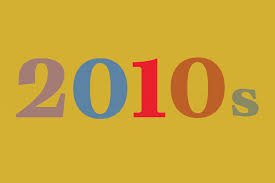 Apologies for the brutal honesty, but regarding the 2010s I have this to say: What a lousy decade for entertainment!
Apologies for the brutal honesty, but regarding the 2010s I have this to say: What a lousy decade for entertainment!
Looking back over the past ten years, we find that Hollywood ramped up its war against originality. It was in in the 2010s that movie folk, always partial to remakes, ramped up the reboots, resulting in a flood of substandard regurgitations. No wonder movies are reportedly considered the “ugly cousins” of the entertainment world by modern media titans, who tend to prioritize internet and cable TV platforms over film exhibition, and that many film school attendees, according to one recent article on the subject, have been switching their focus to video games, as there’s “more growth” in that field than in the movie business.
In fairness, Hollywood isn’t entirely to blame for all this awfulness. Quite a few upheavals in the media landscape occurred in the 2010s, such as the rise of YouTube, Amazon and other online platforms from media purveyors to creators, and also the dissolution of the DVD market, which in the 2000s provided movie studios with much-needed ancillary revenue.
There is hope, of a sort, in the form of a hitherto widely despised medium: television. For those of us who came of age in the pre-internet era, TV was the greatest evil facing mankind, certain to rot the brains of children and adults alike (and indeed fry those brains to a crisp if we sat too close to the things). Now, unlikely enough, television is being heralded as the savior of the cinema, with small screen outfits like Netflix cornering the awards market with ambitious series and features of a standard Hollywood used to approach.
If I sound a little underwhelmed by this “good news” it’s because I’ve heard this rap before. Back in the eighties and nineties it was the video rental market that was supposed to be the savior of the moving picture (which brings up another noteworthy occurrence of the 2010s: the disappearance of video stores), and in the 00s it was DVDs. Long story short: such rosy predictions failed to come true.
If the movies have been struggling in today’s entertainment landscape, consider that the publishing industry has been hit a hundred times worse. In the case of print media virtually everything, as the saying goes, is still up in the air, and where it all might end up upon hitting the ground is anyone’s guess. The mass market paperbacks with which I and so many others grew up are nearly extinct, replaced with increasingly expensive trade paperback and hardcover book editions, while the periodical market has been affected in a similar manner. As with the movies an apparent savior is said to be on the horizon in the form of e-texts, but in fact ebooks have been on the market for some time now, and have yet to pull the publishing industry out of its doldrums.
Anyhow, those are my none-too-optimistic thoughts on the media of the past decade. With that out of the way, here are my sure-to-be-controversial listings of the ten best films and books of the 2010s.
The news, as it turns out, wasn’t all bad movie-wise, with a number of standout films appearing in an otherwise truly awful decade. Understand: the following is not a ranking of the strangest or most offbeat films of the 2010s (although there are a great many oddities to be found below), nor the best science fiction films (although there are certainly quite a few of those), but, simply, those films released during the years 2010-20 that I consider my favorites. Hence…
The Bedlam Files Ten Best Films of the 2010s
1. CLOUD ATLAS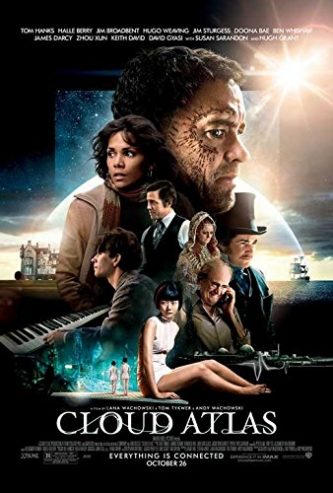
The “est” movie of the decade, as in the wildest and craziest, and also the most audacious and far ranging, spanning as it does the distant past, the present and the far future. CLOUD ATLAS is the only film released in the last ten years that for me really stands up to repeat viewings, seeming every bit as unprecedented and confounding now as when it was first unveiled eight years ago.
2. UPSTREAM COLOR
Like many film buffs I’m unhappy that Shane Carruth’s A TOPIARY, surely one of the most mind-roasting screenplays ever conceived, didn’t make it to the screen, but Carruth did at least manage to turn out this beautiful and bizarre no-budgeter in its place. As with A TOPIARY and Caruth’s earlier film PRIMER, UPSTREAM COLOR is science fiction themed, with a wholly unique plotline that only Shane Carruth could have dreamed up.
3. BLADE RUNNER 2049
No, this Denis Villeneuve directed sequel to BLADE RUNNER doesn’t approach the transcendent brilliance of its predecessor, but it does come pretty damn close.
4. CLIMAX
Easily Gaspar Noe’s finest film, a staunchly minimalistic yet stunningly innovative depiction of pure insanity set within a nightclub whose patrons are given LSD spiked punch.
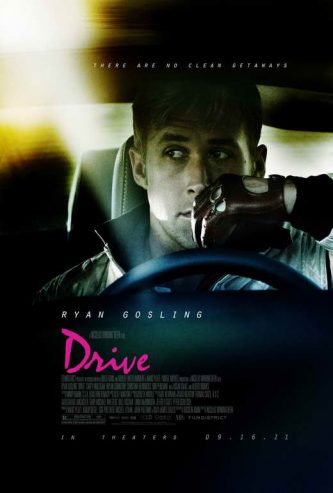 5. DRIVE
5. DRIVE
Like Gaspar Noe, director Nicolas Wendig Refn excels here by keeping it simple. I haven’t been too impressed with Refn’s last few films, all of which appear to have been trying for the type of arthouse thriller formula utilized, brilliantly, in DRIVE.
6. A PROPHET (UN PROPHETE)
Of the many crime movies that appeared in the 2010s this French made epic (a 2009 release that didn’t appear in the US until the following year) is to my mind the greatest, with a verve, ambition and cinematic mastery that have yet to be bettered, much less matched.
7. HARD TO BE A GOD (TRUDNO BYT BOGOM)
It’s unfortunate that this film was never properly finished—its genius director Alexei German died shortly after filming was completed, leaving his widow to supervise the editing—but what’s here is awe-inspiring, a highly idiosyncratic adaptation of Boris and Arkady Strugatsky’s science fiction classic HARD TO BE A GOD, set on a planet whose inhabitants are mired in the middle ages.
8. HER
Scarlett Johansson gives what is arguably her finest-ever performance in the voice-only role of a computerized creation that finds itself becoming increasingly human. Not an especially unique premise, but writer-director Spike Jonze’s imaginative scripting and stylistic assurance make for a science fiction romance like none other.
9. THE STRANGE COLOR OF YOUR BODY’S TEARS (L’ETRANGE COULEUR DES LARMES DE TON CORPS)
A tribute to the giallo thrillers of Dario Argento and others that works on its own as a uniquely demented piece of cinematic outrage worthy of the filmmakers it references.
10. MOTHER!
General audiences detested this freak-out from writer-director Darren Aronofsky, whereas I, needless to say, loved its every outrageous, bizarre, complacency-shattering minute.
From there we pivot to my favorite books of the decade. Once again, no particular format or genre is favored, although it might seem that way (yes, I am partial to horrific and film-related texts), these being simply the books of the 2010s that I liked the most.
The Bedlam Files Ten Best Books of the 2010s
1. THE STRANGE TALE OF PANORAMA ISLAND by SUEHIRO MARUO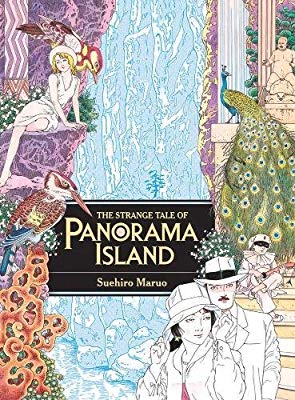
This now out of print manga masterpiece is an altogether stunning adaptation of Edogawa Rampo’s similarly titled novella by the ero-guro master Suehiro Maruo. Perhaps in the coming years Maruo will officially join the ranks of Hieronymus Bosch, H.R. Giger and other masters of artistic weirdness, and if so THE STRANGE TALE OF PANORAMA ISLAND will be among the foremost reasons why.
2. 70s MONSTER MEMORIES edited by ERIC McNAUGHTON
A UK-only publication about genre movies of the 1970s, as remembered by the (mostly British) “Monster Kids” who came of age in that era. Every conceivable facet of ‘70s monster movie lore is covered in a gorgeously designed large format paperback that’s currently impossible to find. Still, if you have any interest whatsoever in pop culture of the era than tracking down a copy will be well worth your while.
3. STANLEY KUBRICK’S THE SHINING: STUDIES IN THE HORROR FILM edited by DANIEL OLSON
Another book that vanished from print far too soon, this is an anthology that can be termed the definitive resource on Stanley Kubrick’s THE SHINING, drafted with a thoroughness and attention to detail worthy of the famously exacting Kubrick himself.
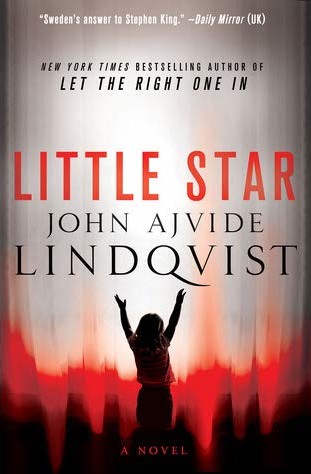 4. LITTLE STAR by JOHN AJVIDE LINDQVIST
4. LITTLE STAR by JOHN AJVIDE LINDQVIST
Horror fiction as it should be: unashamedly dark, challenging and compelling, with a conception that’s thoroughly contemporary and horrifically convincing, and a conclusion that’s guaranteed to haunt you forever.
5. THE DEEP SEA DIVER’S SYNDROME by SERGE BRUSSOLO
A horror/science fiction tale by the “French Stephen King” about art, insanity and the power of the subconscious, all contained within a superbly plotted science fiction thriller.
6. A LIT FUSE: THE PROVOCATIVE LIFE OF HARLAN ELLISON by NAT SEGALOFF
A biography of the incomparable Harlan Ellison—how could this not be a must-read?
7. SLADE HOUSE by DAVID MITCHELL
A literary horror novel that proves two things: 1). That non-genre affiliated writers can bring a unique and vital energy that sets their work apart from that of career horror scribes, and 2). That writing genre fiction can free up literary authors in a good way.
8. THE TROOP by NICK CUTTER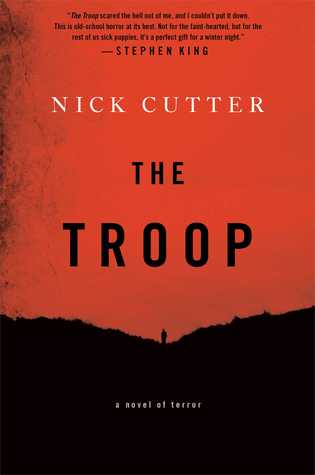
You may—okay, very likely will-–be upset by this book, but I guarantee you’ll have a hard time putting it down. THE TROOP is a triumph in every respect, satisfying as both a creepy-crawly horror story and a profound glimpse into the heart of darkness.
9. FEAR by DARIO ARGENTO
Yet another vital book that went out of print almost immediately, this is the long-awaited autobiography of Dario Argento. It doesn’t disappoint, offering a great deal of insight into a most singular life and filmography.
10. 11/22/63 by STEPHEN KING
This time travel opus may well be the most sheerly enjoyable novel Mr. King has ever written, being in the same league with time tripping classics like Jack Finney’s TIME AND AGAIN and Ken Grimwood’s REPLAY.
